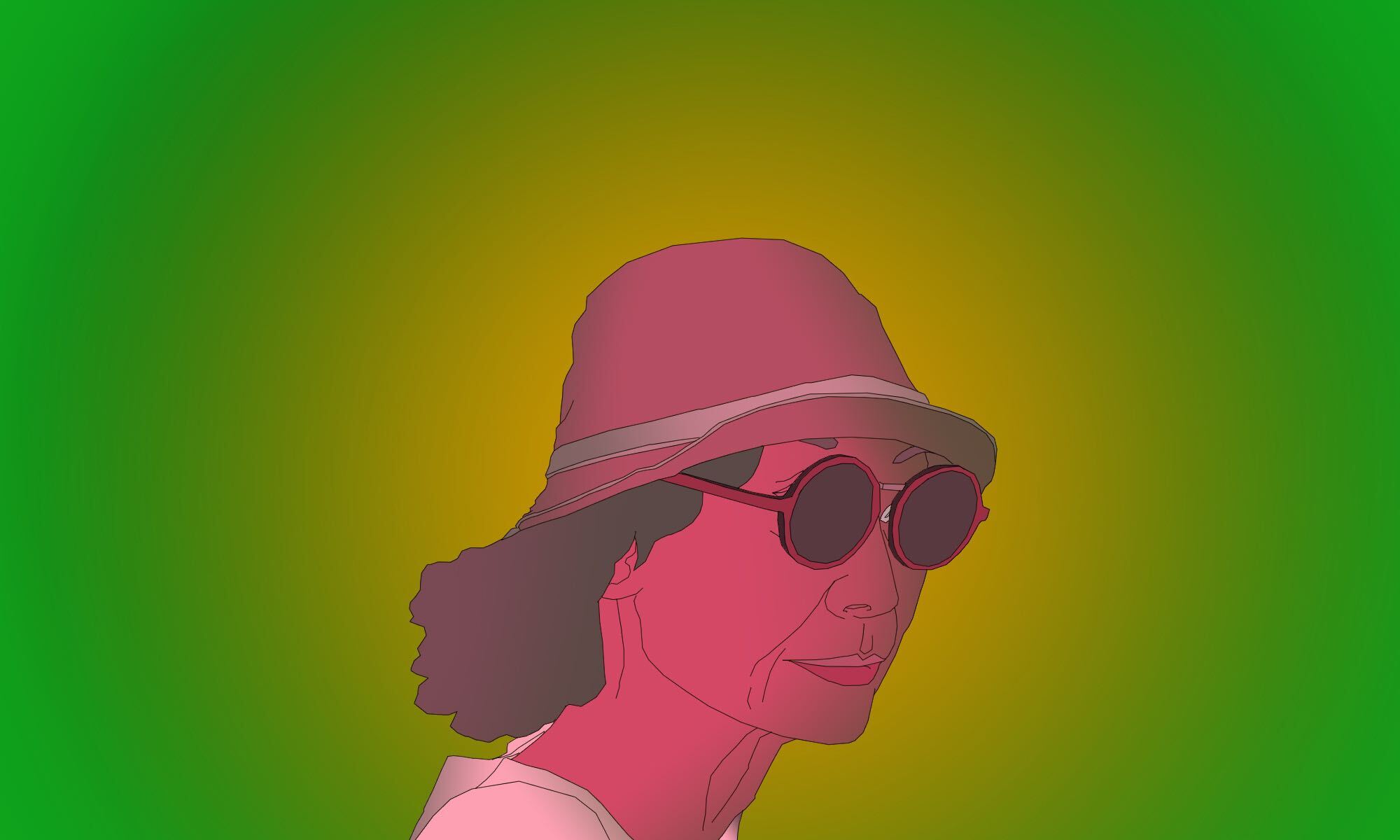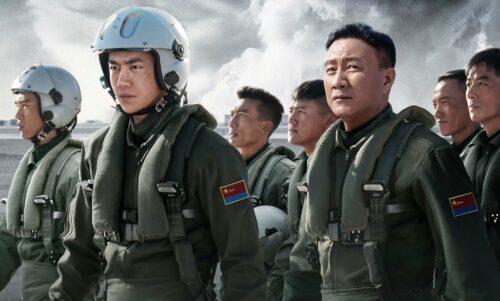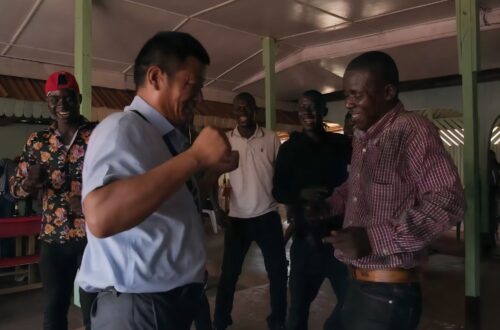‘The Exiles’: Chinese democracy activists reflect on their banishment
Filmmakers Violet Columbus and Ben Klein reopen one of the most tightly sealed boxes from China’s collective consciousness — the 1989 Tiananmen Massacre — to consider what it means to be Chinese.

Good documentaries need to have one of two elements: a wealth of archival material, whether that be footage, documents, photographs, etc., to build a strong visual and atmospheric foundation of the past, or a compelling character to catalyze the story. The Exiles, the Sundance-winning debut feature from Violet Columbus and Ben Klein, has both.
The film opens with Columbus and Klein interviewing Christine Choy (崔明慧 Cuī Mínghuì), who is most well-known for her Oscar-nominated documentary Who Killed Vincent Chen? In the New York film community, Choy is regarded as one of the brashest, most uncompromising, chain-smoking, expletive-spewing, wonderfully politically incorrect, and always-magnetic people you’ll have the pleasure of talking to. We learn through the film that Choy had ambitions to make a documentary about the exiled leaders of Beijing’s 1989 democracy movement, but the film never came to fruition due to budgetary and emotional constraints.
In 1989 she and a small crew started closely following Yán Jiāqí 严家其, a steadfast and observant intellectual, Wàn Rùnnán 万润南, the once-CEO of the tech firm Sitong, and Wu’er Kaixi (吾尔开希·多莱特 Wúěr Kāixī Duōláitè), a fiery student leader, from the day the men land on American soil. Their post-Tiananmen story is told through press conferences, demonstrations, protests, and quieter moments of conversation and rest. (One of these exiles’ friends, Chén Yīzī 陈一咨, died in Los Angeles.) This footage intimately captures how these young men grapple with witnessing their compatriots die at the hands of a government they once respected. Back then, they believed that China’s political corruption and their own exiles would be temporary, a necessary anguish before a revitalizing rebirth.
More than 30 years later, the Tiananmen Square Massacre remains taboo in Chinese public discussion, and entirely nonexistent in the country’s history books. The three men are still not allowed back in China, now an economic powerhouse that even the strongest countries cannot afford to offend.
As depicted in the documentary, Columbus and Klein urge Choy to finish her film, though time has warped the past into something darker and more complicated than a cinéma vérité experience can capture. The old footage necessitates present reflection. So the filmmakers embark on a global journey to reunite with the now-aged leaders as they more slowly and bitterly reconcile with the rash decisions they made as angry, energetic, and idealistic dissidents, which have cost them the ability to see their families and have permanently separated them from the only culture that they’ve ever embraced.
This is what makes The Exiles so fascinating and specific. Of course, the historical and cultural elements of the film are rich and informative without ever feeling stiff and academic, and the visual access the viewer gets of the June 4th violence is remarkable. However, the question I continuously asked myself, the answer changing scene-by-scene as I watched the film, is, “What is an exile?” What makes a Chinese exile?
Of course, these exiles are dissidents who reject the politics of China. But politics, as we learn through this film, do not make a country, and they do not make a country’s people.
These subjects were and have remained Chinese. They have split off geographically, but the soul of the country has migrated with them. Yan Jiaqi now lives in Maryland, but really only speaks Mandarin. He watches Chinese television programs, cooks Chinese food, and since 1989 has kept painstakingly detailed diaries of his life and political pursuits (written in the only language he is fluent in). Wan Runnan now lives in Paris, where he spends his days in a static and melodic calm of gardening, raising chickens, and reflecting on his past. He has never picked up French. Wu’er Kaixi lives in Taiwan as a political commentator and laments that he has not been able to see his family since he fled.
All three live in a limbo between the past they chose and the present they are forced into, and the only constant between them is the culture, the language, the spirit they were born into: that of being uncompromisingly Chinese. And if you know any Chinese person, you know what I mean. The lilt of continuous conversation. The sharp honesty. The food. And of course, strength in the face of tumult. The ability to consume bitterness and not see it entirely as a punishment.
Exiles ostensibly have no allegiance to their country, but their placelessness necessitates an interior home. One of the film’s most touching and memorable scenes comes from the archives. The group of exiles goes to the beach, where they — and Choy — relax. Their conversations still revolve around politics, but the camera captures them as people: young, naïve, headstrong. They are seen not for their political victimhood but for their gentleness, their longings, and their camaraderie. It’s touching and also incredibly sad, because while the viewer registers their loyalty to what a country should value most — their ideals for freedom, for hope, for togetherness — we also understand that China will never see them that way. Exiles are punished for their disloyalty to the ruling regime, not to what gives a country its texture, its color, its poetry, its people. I saw how exiles maintain a cultural loyalty that immigrants have the freedom to abandon.
Choy, half-Korean, half-Chinese, was raised in mainland China. She voluntarily left Shanghai and now sees her home as New York City, more specifically lower Manhattan. There is a tension between Choy’s assertion that she’s “philosophically homeless” while maintaining the freedom to travel back to China (in one scene she even questions young students at an elementary school about what they know about the history of Tiananmen Square). Indeed, what makes Choy such an interesting figure is that she fluctuates between exile and immigrant. She has made decisions that have unmoored her from her first home, but she also has very little allegiance to America, from its politics to its societal structures.
When Choy connects with the exiles, we see a different side of her. A wall seems to dissolve, and while her brazen character remains intact, her voice softens. There’s an ease with which she speaks in her raspy, sardonic Mandarin with the subjects, a serenity to how she smiles with them, and a thoughtful empathy with which she listens to a history she cannot help but feel a part of.
The only way I can really put it is, She’s at home.
The Exiles will next screen at HotDocs and Jeonju Film Festival. A U.S. release is pending.






